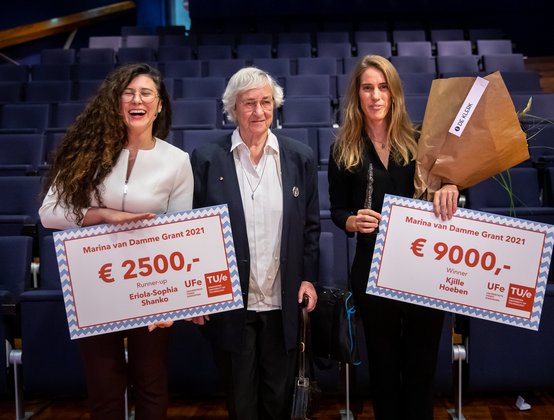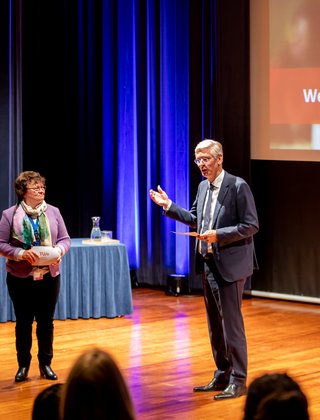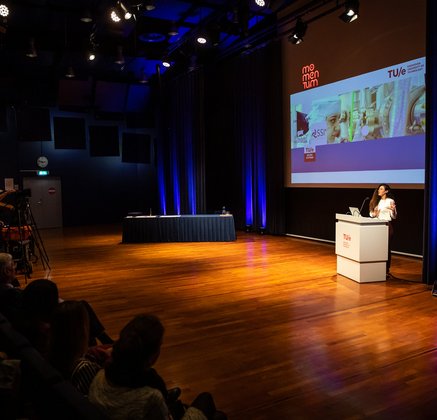Special award for women in science
The University Fund doesn’t only raise funds, but also manages them for project teams and individuals who donate to science through a named fund. We do so, for instance, for the winners of the Marina van Damme Award, which is a prize given annually to a number of female scientists who completed a technical university degree program.
Please read on for the stories of two of these winners.
Kjille Hoeben – Continuously monitoring body temperature
July 2006, Nijmegen 4Days Marches. With temperatures up to 34 degrees Celsius, this huge event had never before taken place in such hot conditions. It was also the first one ever to be discontinued, after two participants passed away, in one case from heat stroke. This tragedy led to the foundation of a company with a unique goal.
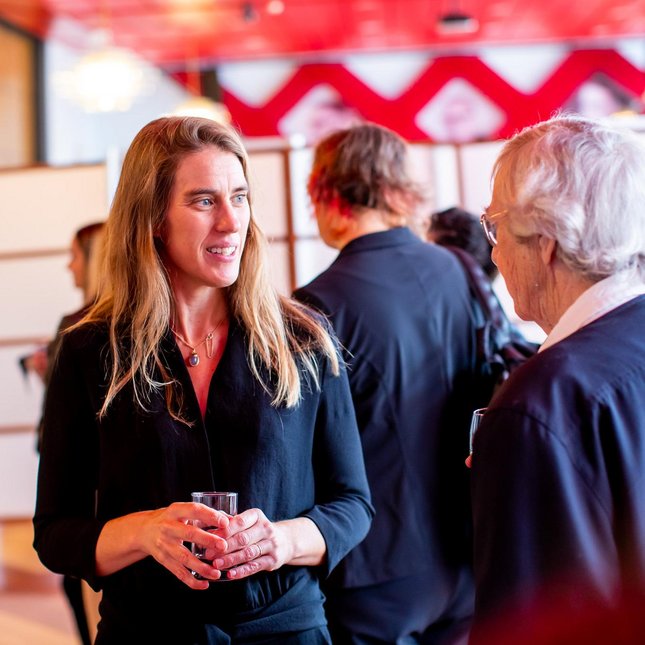
Capsule monitoring body temperature
Professor Maria Hopman from the physiology department at Radboud university Medical Center wanted to know more about what happens in our bodies during exercise. As there was no product, substance or machine able to indicate this at the time, she asked Kjille to investigate this. Together with two technical experts, she started the company myTemp in 2014, in order to translate her research into a product. It concerns a capsule that is swallowed by the test subject, which makes for an affordable and precise measuring instrument.
Impact
In Kjille’s own words, this is what it’s like to build such a company: “A start-up’s path is bumpy. You experience both success and failure. You have to stay resilient and true to your original idea.” After winning the 2016 Dutch National Sportinnovator Prize, myTemp also contributed to the Thermo Tokyo project, which prepared athletes for the climate in which the 2020 Olympics would be held. The collaboration with Joost Fonville, whose son died of heat stroke during the Dam tot Damloop run, also made a lot of impact.
Director on paper
On paper, Kjille is the director of a great company, but she doesn’t actually pay herself a salary because all of the money goes to developing the capsule. She applied to the Marina van Damme Grant for the necessary extra financial support. The evaluation committee was very impressed and honored Kjille’s application, awarding her €9,000 to bring her one step closer to her great ambitions.
Eriola-Sophia Shanko – ShanX: Testing antibiotics before administration
Eriola-Sophia took the long way to the Netherlands. She was born in Albania, shortly after the communists lost power there. In hopes of a better future, the family moved to Greece. Her parents found jobs and she was the first one in the family to go to university. When the Greek economic crisis hit and both parents became unemployed, Eriola-Sophia took on several part-time jobs to take care of them and pay her way through her studies.
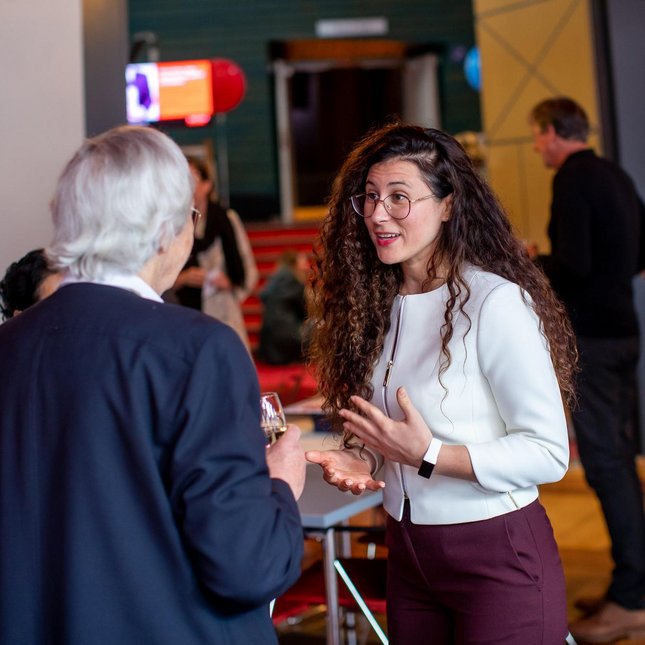
Personal motivation
To make matters worse, her mother underwent heart valve surgery. While recovering, she contracted a bacterial infection. The cocktail of antibiotics she was administered weakened her immune system even further. In the end she overcame the seven liters of fluid that filled her lungs and made a full recovery, but all of this did inspire her daughter Eriola-Sophie to dedicate her life to better care for patients.
Convinced that the problems could easily have been prevented, she decided to develop a method to test antibiotics before they are administered. As her own financial means were insufficient, she applied for a grant at Erasmus University. With this grant, she studied at various European universities, the ideal way to build a network and develop her communication skills. Her desire to learn more about medical devices and turn her dream into a reality led her to TU/e, where she researched magnetic micromixing for point-of-care diagnostics.
From dream to company
In 2019, Eriola-Sophie founded ShanX MedTech BV, the company with which she aims to strongly improve antibiotics treatments. Ultimately she hopes to devise a method enabling a treating physician to select the right antibiotics within four hours. Funding being one of the initial challenges, she spent all her savings on buying materials. Thanks to her enthusiasm and drive, she was able to rally a group of experts, advisers and doctors to the cause that provide pro-bono help. She applied for subsidies and was granted several. But as we know, research costs a lot of money so there can never be too many contributions. She therefore submitted a successful application for a Marina van Damme Grant, finishing in second place and receiving €2,500. This has brought her dream of administering antibiotics more efficiently one step closer.
